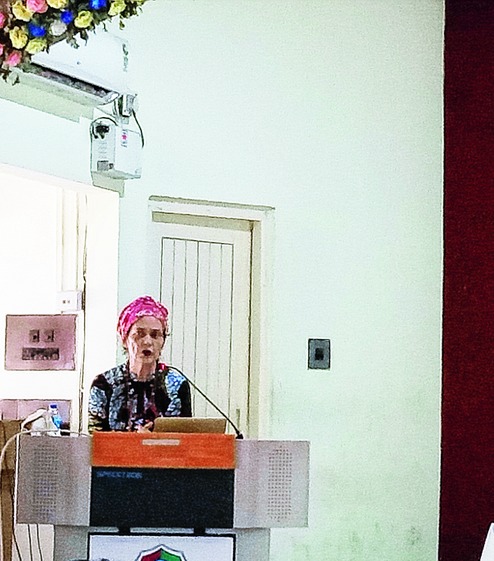
Calcutta: Tata Institute of Social Sciences, Guwahati, faculty Sanjay Barbora expressed concern over the bleak agricultural scenario of contemporary Assam.
During a lecture on Peasants, Students, Insurgents and Popular Movements in Contemporary Assam, organised by the Mahanirban Calcutta Research Group (MCRG), in collaboration with Rosa Luxemburg Stiftung, Germany, here this week, Barbora said the BJP government's rapid privatisation of public sector companies, eviction drives, along with land absorption and faulty public distribution system, are major factors that have contributed to peasants' misery.
"It is a tragedy that Assam's agriculture sector has not developed in the past 10 years. It is expensive to be a farmer today. The Food Corporation of India doesn't buy our farmers' produce," he said. Barbora also blamed poor transportation and flawed communication between NGOs and farmers for the crisis. He said the only way farmers can catapult themselves from this misery is by changing their profession or migrating to other states.
He said the socio-political struggles of the state are being affected with Krishak Mukti Sangram Samiti adviser Akhil Gogoi behind bars.
"We've been worried since Akhil was arrested. He is a 'dangerous figure' to the state establishment. We are investing our time and money to get him released," Barbora said.
Akhil was arrested in September under the National Security Act for allegedly instigating people to take up arms against the government.
"Akhil is a well-informed leader. He is often criticised for jumping from one issue to another. But it is necessary since all of them are connected and need to be addressed," he said.
Barbora, who is involved in human rights movement in Assam, said many popular movements and organisations that emerged during the anti-imperial struggles in the early 20th century failed to turn political mobilisation of the peasantry from the colonial state to radical democratic institutions. The popular struggles eventually shifted towards other categories such as students and insurgents, he added. "Joining rebel camps is still popular among the youth in Upper Assam. This is a means for them to address their humiliation," he said.
Barbora also expressed concern over the emergence of communal tension across the state since the BJP came to power in Assam.
He also highlighted the issues of Nepali-speaking people of the state and grazers, who are often looked upon as "interlopers".
"The lecture intended to comprehend the significance of popular movements and politics in the context of present-day Assam," said Anita Sengupta, director of MCRG. Ranabir Samaddar of MCRG, said unlike Assam, Bengal lacks popular peasant movements.










